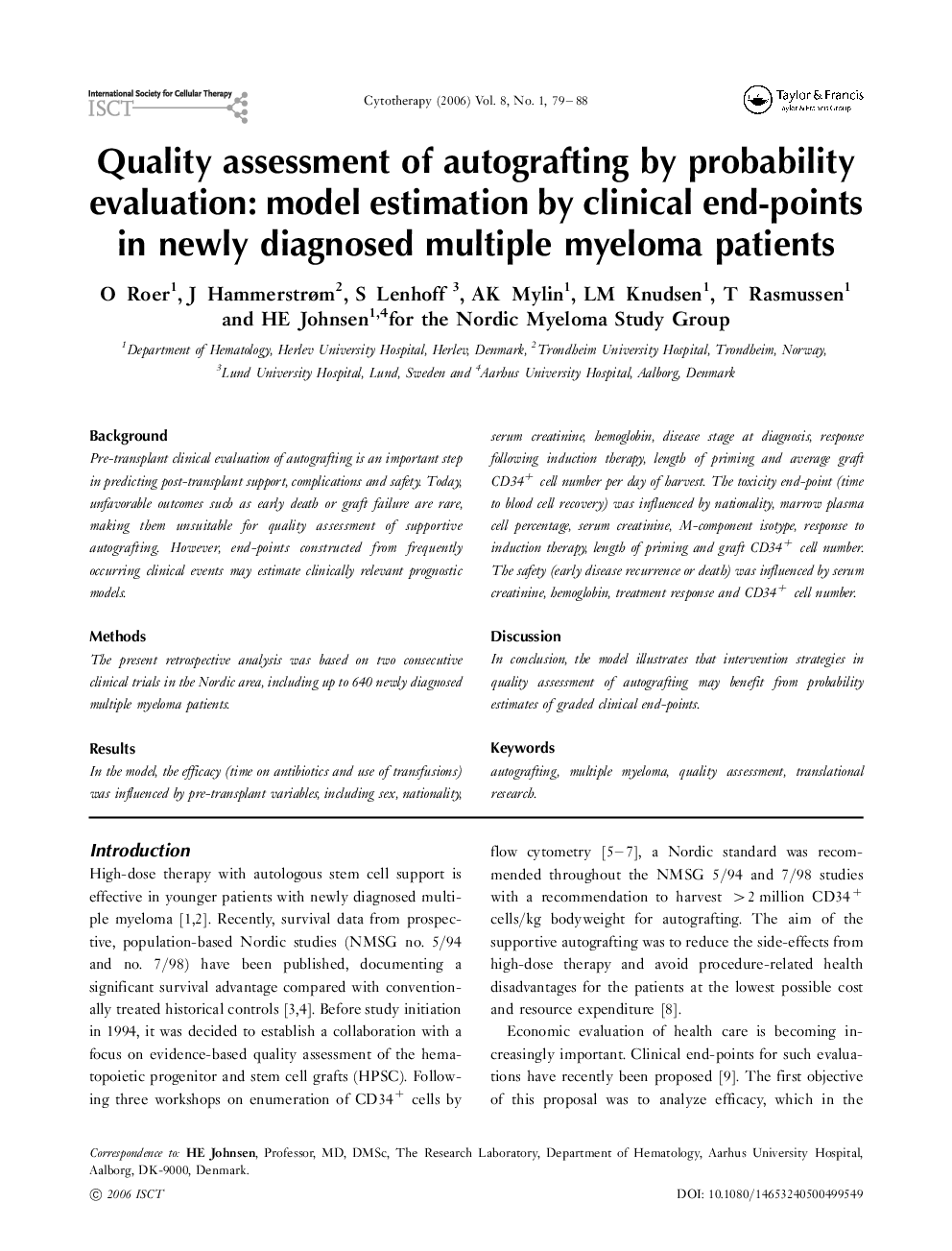| Article ID | Journal | Published Year | Pages | File Type |
|---|---|---|---|---|
| 2172712 | Cytotherapy | 2006 | 10 Pages |
BackgroundPre-transplant clinical evaluation of autografting is an important step in predicting post-transplant support, complications and safety. Today, unfavorable outcomes such as early death or graft failure are rare, making them unsuitable for quality assessment of supportive autografting. However, end-points constructed from frequently occurring clinical events may estimate clinically relevant prognostic models.MethodsThe present retrospective analysis was based on two consecutive clinical trials in the Nordic area, including up to 640 newly diagnosed multiple myeloma patients.ResultsIn the model, the efficacy (time on antibiotics and use of transfusions) was influenced by pre-transplant variables, including sex, nationality, serum creatinine, hemoglobin, disease stage at diagnosis, response following induction therapy, length of priming and average graft CD34+ cell number per day of harvest. The toxicity end-point (time to blood cell recovery) was influenced by nationality, marrow plasma cell percentage, serum creatinine, M-component isotype, response to induction therapy, length of priming and graft CD34+ cell number. The safety (early disease recurrence or death) was influenced by serum creatinine, hemoglobin, treatment response and CD34+ cell number.DiscussionIn conclusion, the model illustrates that intervention strategies in quality assessment of autografting may benefit from probability estimates of graded clinical end-points.
